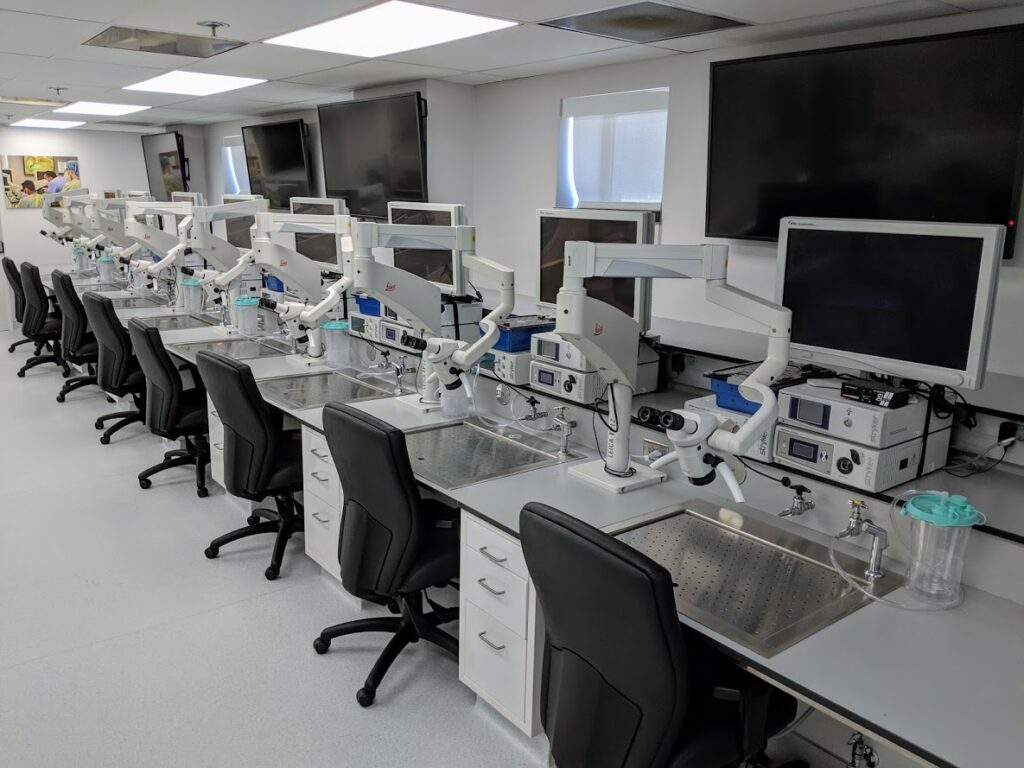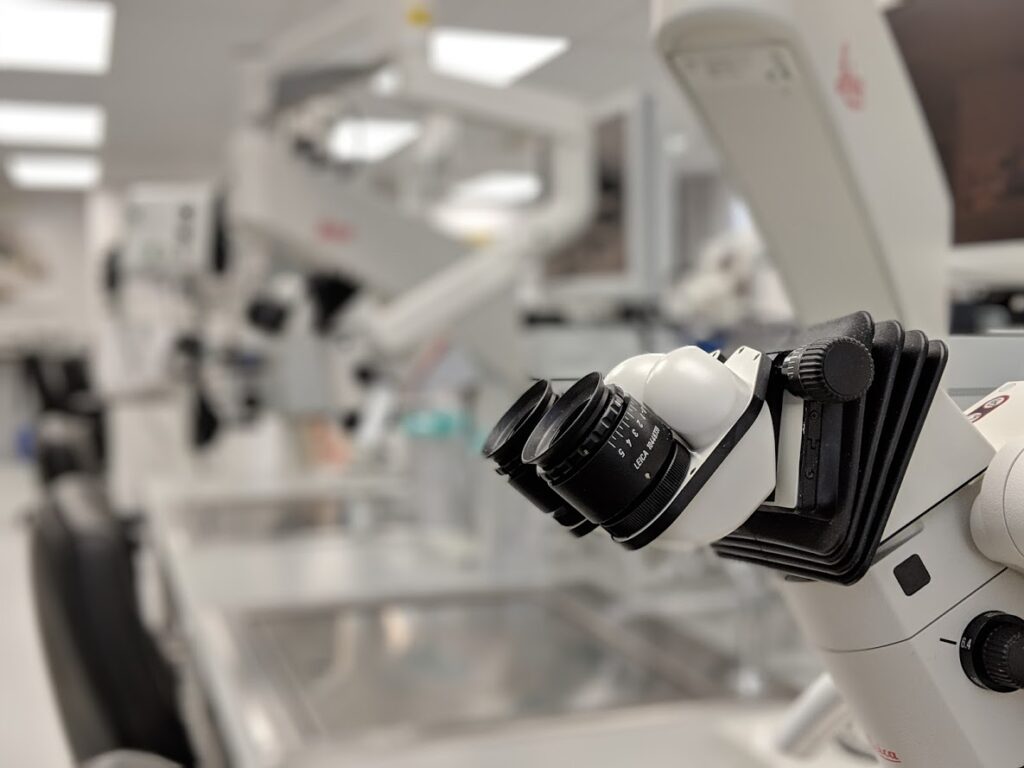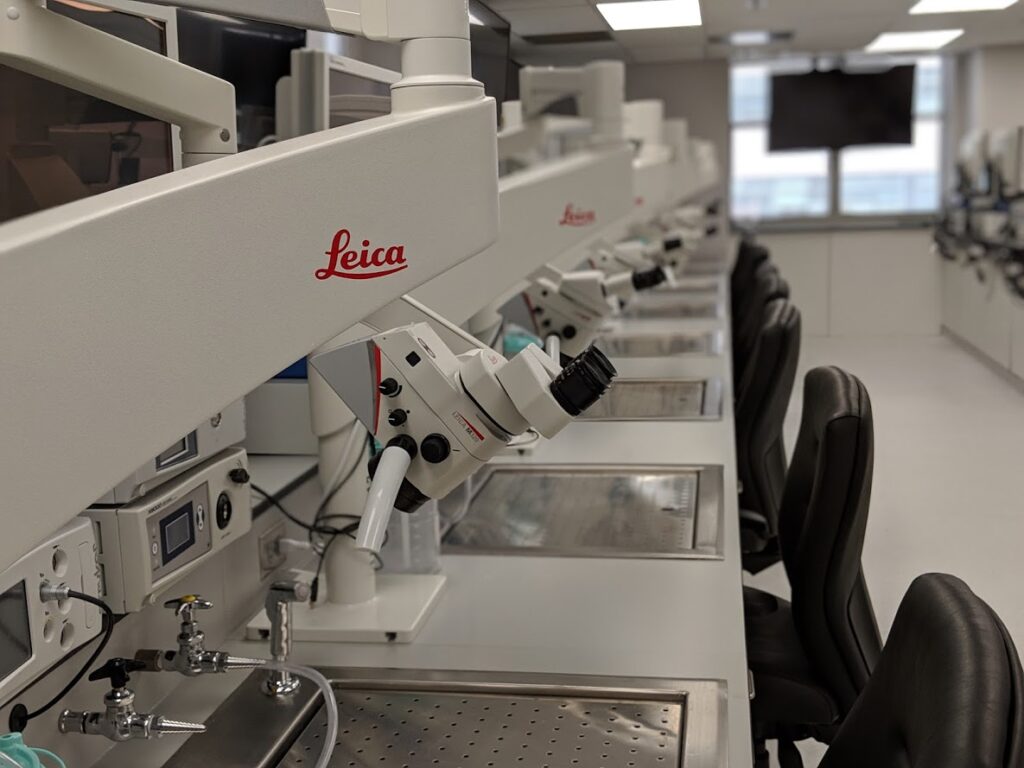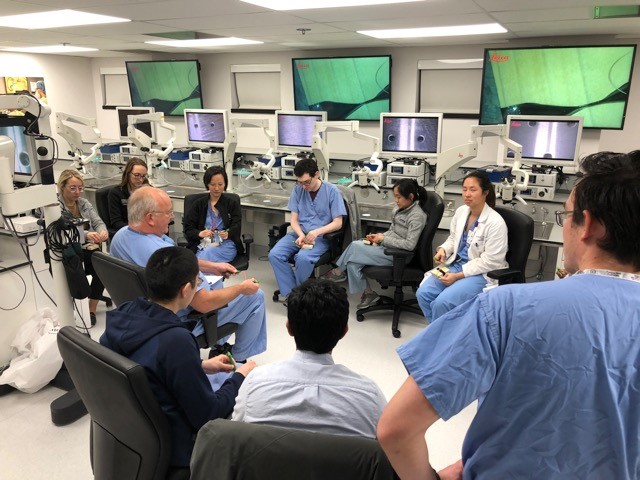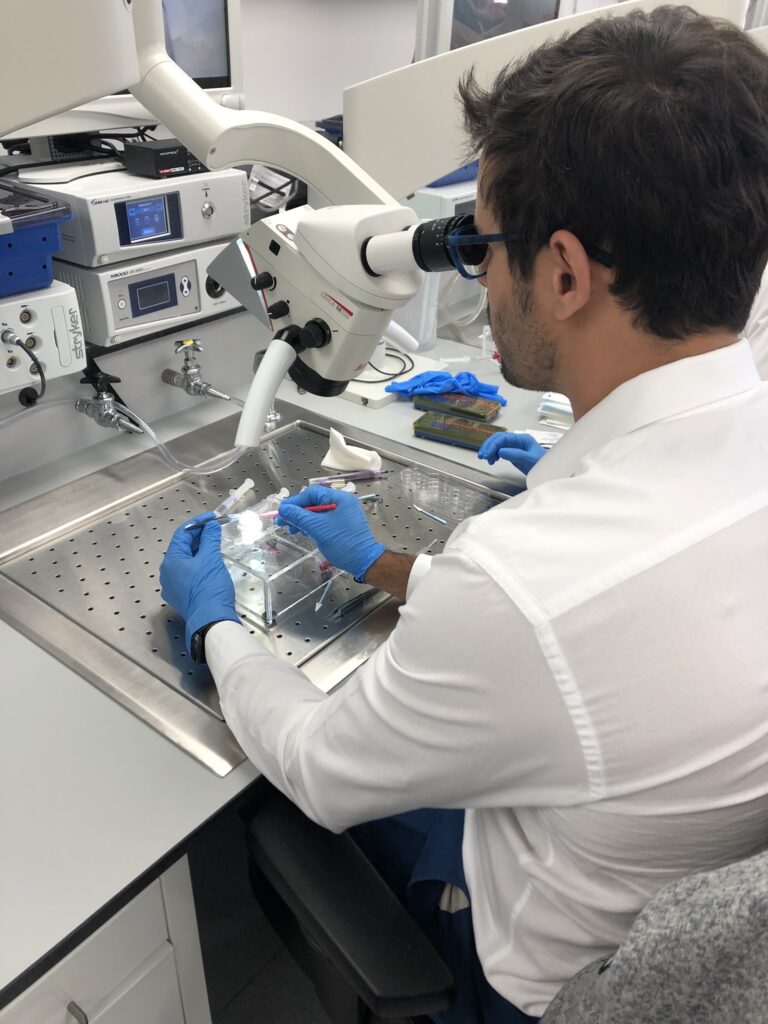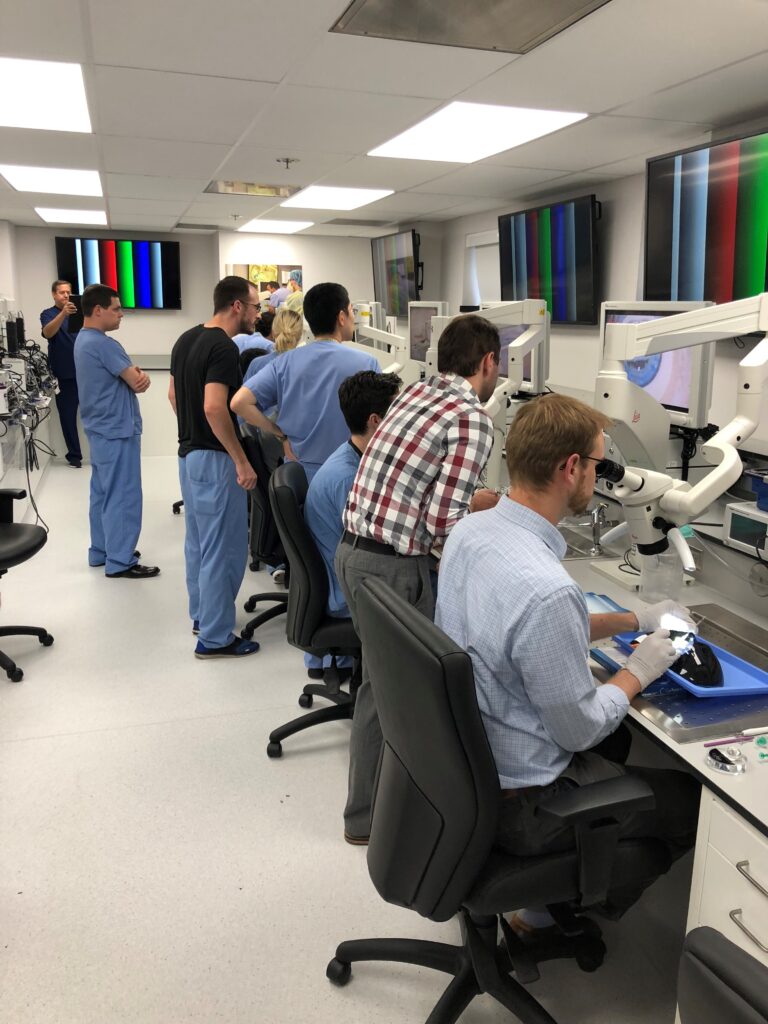Didactics
The department offers extensive didactics to equip residents with the knowledge and reasoning skills necessary to practice across all areas of ophthalmology. Didactic sessions are predominantly interactive and contribute to a strong sense of community among residents, fellows, and faculty, which is a hallmark of our program. On average 4-6 hours of didactic programming are offered weekly with sessions that include:
- Chief Rounds – Held over breakfast from July to March, this weekly review session led by the Chief of Ophthalmic Trauma provides an opportunity to collectively review and apply key ophthalmic principles from the BCSC series following a set reading schedule.
- Grand Rounds – Residents, fellows, and faculty from across the department gather on Wednesday mornings from September to June for collaborative resident and faculty-driven presentations, in addition to special sessions led by department faculty or distinguished guest lecturers.
- Cornea Conference – An informal case discussion on ocular surface and external disease for first-year residents led by department chair Dr. Todd Margolis and the cornea fellows.
- Joint Neuro-ophthalmology Conference with Saint Louis University
- Subspecialty Conference -rotating lectures led by faculty and fellows that provide well-rounded coverage of all subspecialties, including retina, oculoplastics, glaucoma, uveitis, ophthalmic pathology, and ocular oncology.
Surgical Experience
With a catchment area extending 200 miles from the City of St. Louis, the Department of Ophthalmology & Visual Sciences is a high-volume center that provides surgical care for a wide range of ophthalmic pathology. For the past five years, residents have logged case numbers as primary surgeons at or above the national mean in all subcategories set forth by the ACGME.
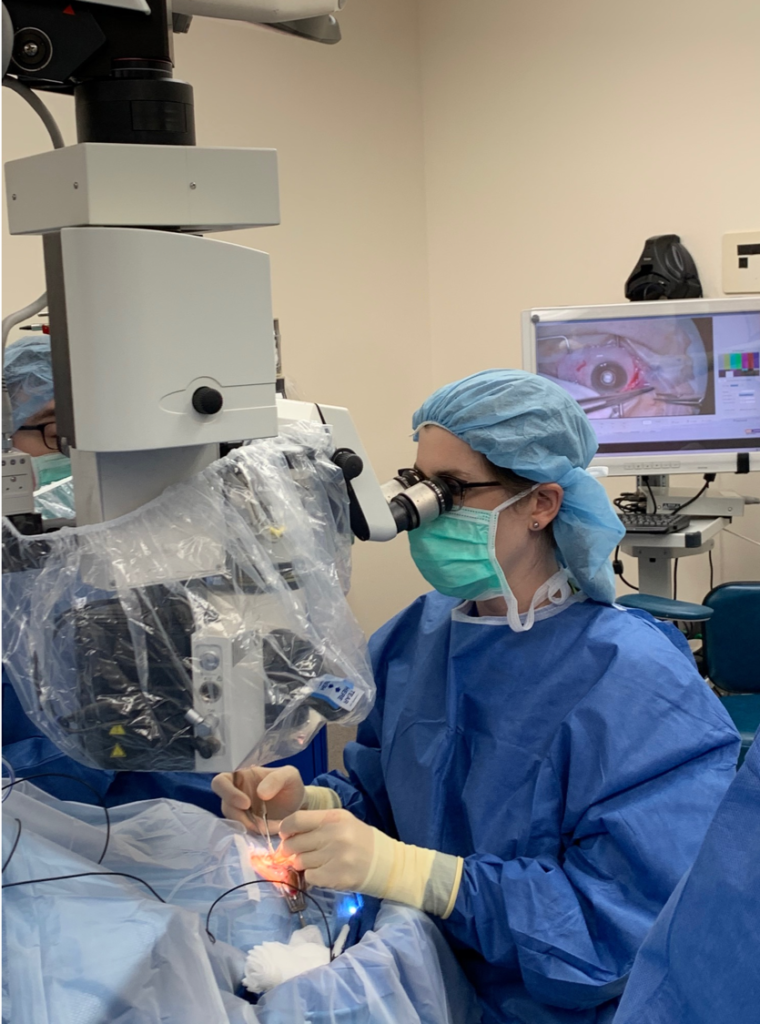
Wet Lab
A newly renovated laboratory with fourteen operating microscopes and audiovisual integration provides an ideal environment to practice surgical skills in group workshops, scheduled individual sessions with faculty members, or independent study at the resident’s convenience. This comfortable, environmentally controlled space is equipped with two phacoemulsification machines and a full complement of ophthalmic surgical instruments. In addition to animal tissue, a generous supply of cadaveric eyes is provided to residents through the eye bank at Mid-America Transplant.
